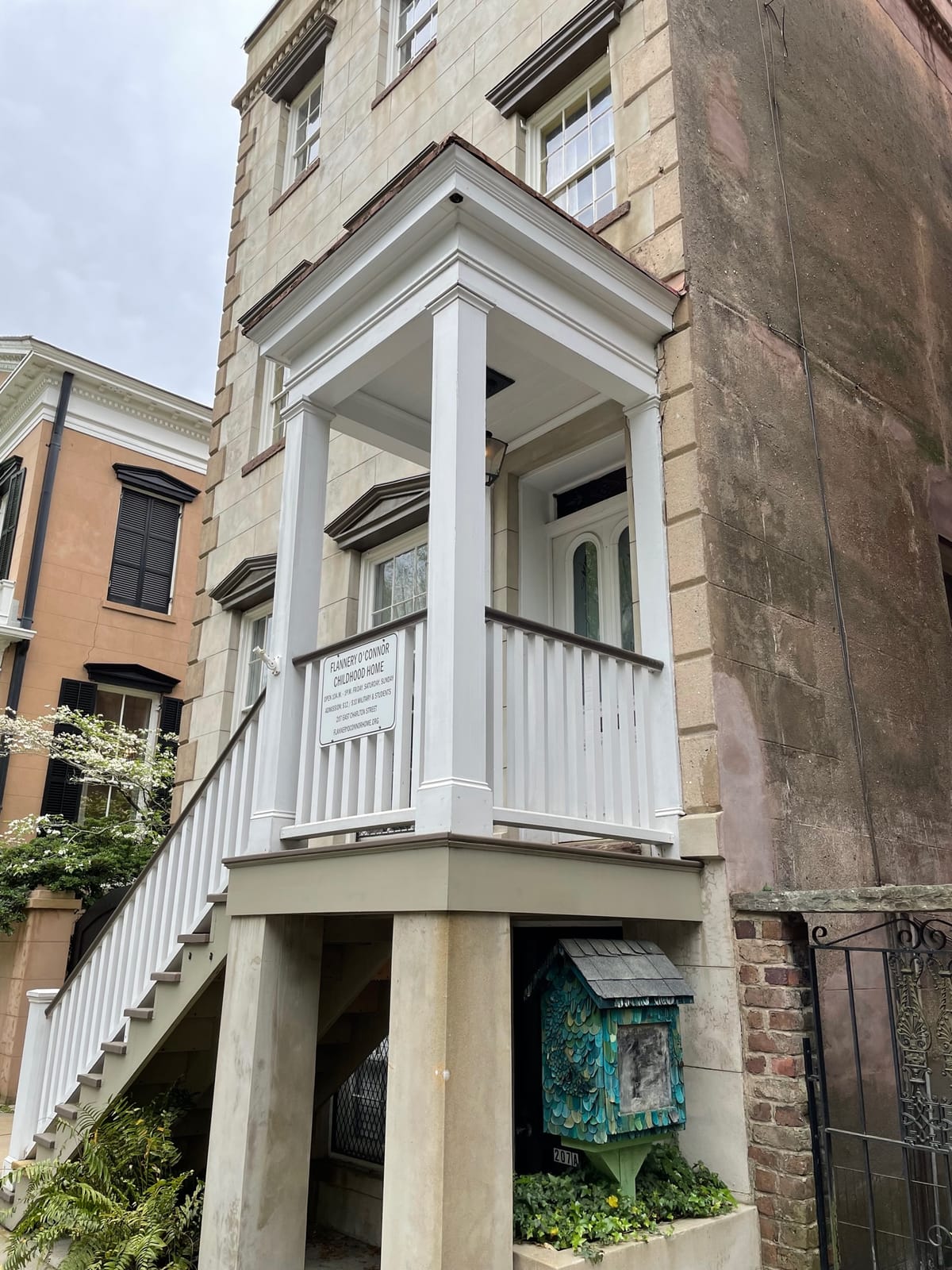Federal Government Admits Catholicism is True

Well, not really, but indirectly, through PBS' Flannery O'Connor documentary
I greatly enjoyed PBS documentary, American Masters: Flannery O'Connor, on PBS.
I thought the producers respected her intense Catholicism. I'm sure they could've found critics to say sacrilegious things like, “Her dark humor emanates from a religion based on a Jew who had a bad afternoon,” but they didn't. Her Catholicism came up frequently but always as a fact, never as a jab.
There were two forays into her correspondence with a bisexual and a lesbian (couldn't leave those things out), but I didn't interpret either as an attempt to portray Flannery as a repressed lesbian, and I'm sure they could've found critics to say things like, “Her dark humor emanates from her nascent lesbianism birthed from her Catholicism,” but they didn't.
The documentary was so good, it made me want to take her stories off the shelf and start reading them. Years ago, I undertook a detailed reading of her stories, accompanied by Jill Palaez's helpful Flannery O'Connor: A Proper Scaring and Flannery's excellent Mystery and Manners. Alas, that was 21 years ago (I know that because Amazon says I bought the books in 1999). I can't expressly recall anything from those books right now, though I will recall things from the books occasionally.
I've also learned over the years that a lot of things are internalized from good reading, so much so that, whenever I make a novel connection or come up with a good idea, I assume it's from my readings years ago.
Anyway, I'm not prepared to start reading Flannery's stories again right now, so instead, I took The Habit of Being off the shelf and started reading the passages I marked, like this one:
“I feel that if I were not a Catholic, I would have no reason to write, no reason to see, no reason ever to feel horrified or even to enjoy anything.”
A passage like this, which exemplifies her artistic life, is significant from the standpoint of the documentary because the documentary emphasized, a couple of times, that Flannery's intense fiction stemmed from her realism. The real informed her fiction. Paradoxical, yes, but a fact, and the documentary emphasized it.
It's a stark admission, quite frankly. After all, if Flannery's Catholicism fueled her writing, and her fiction was a portrayal of the real, it's an admission that Catholicism is real, which is another way of saying it's true.
A stark admission, indeed, especially coming from a media corporation owned by the federal government.



